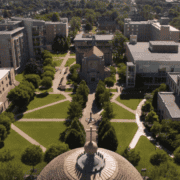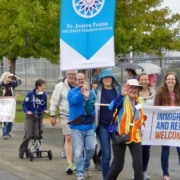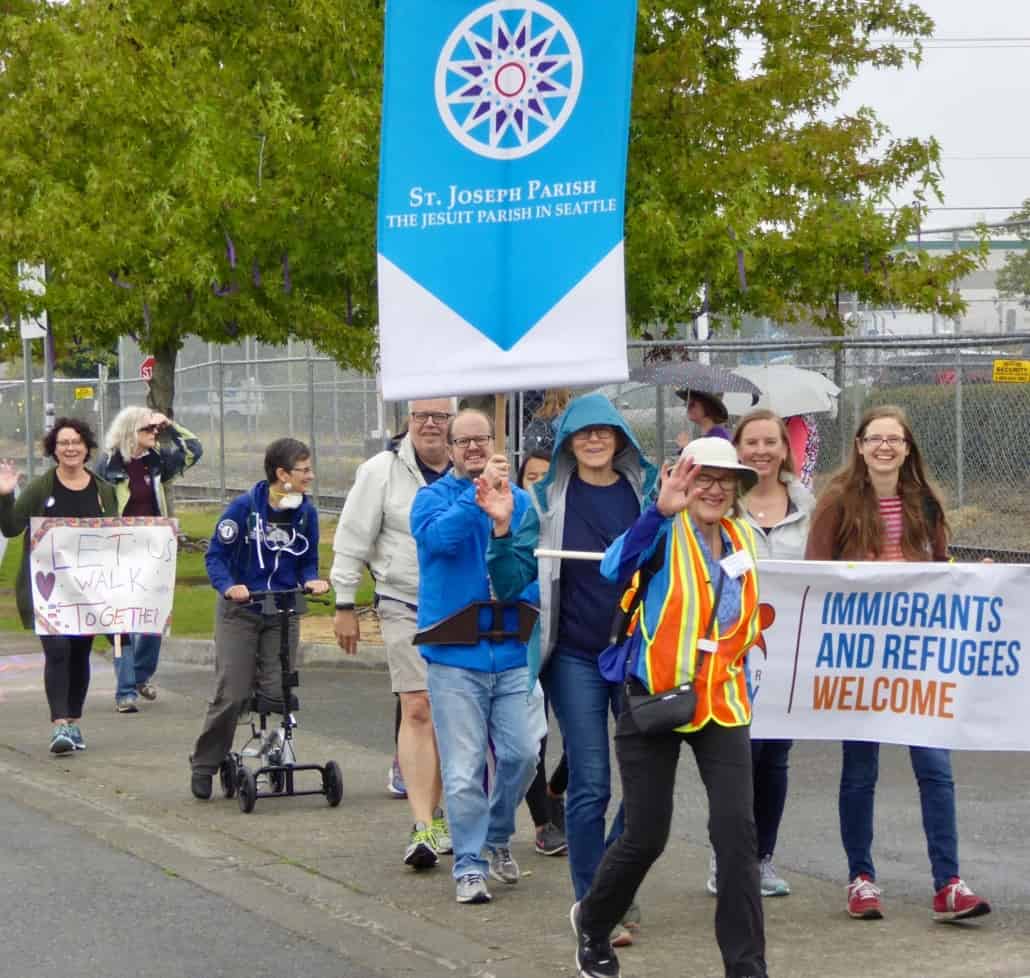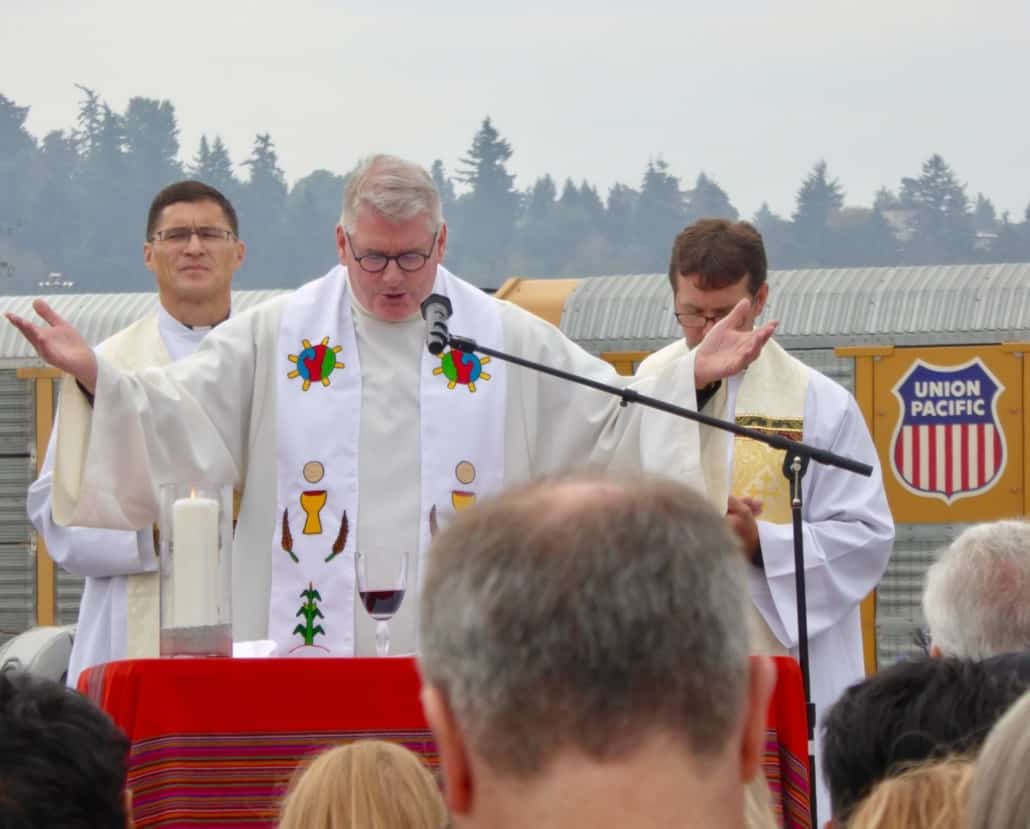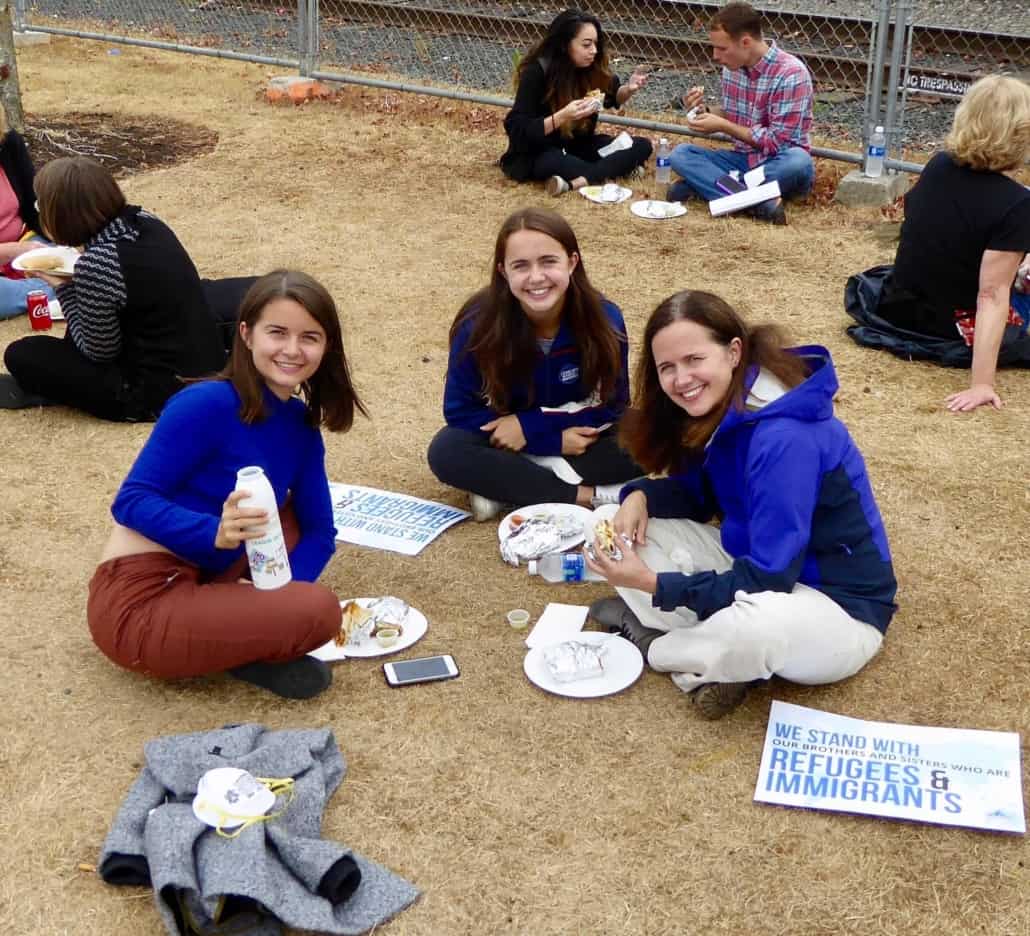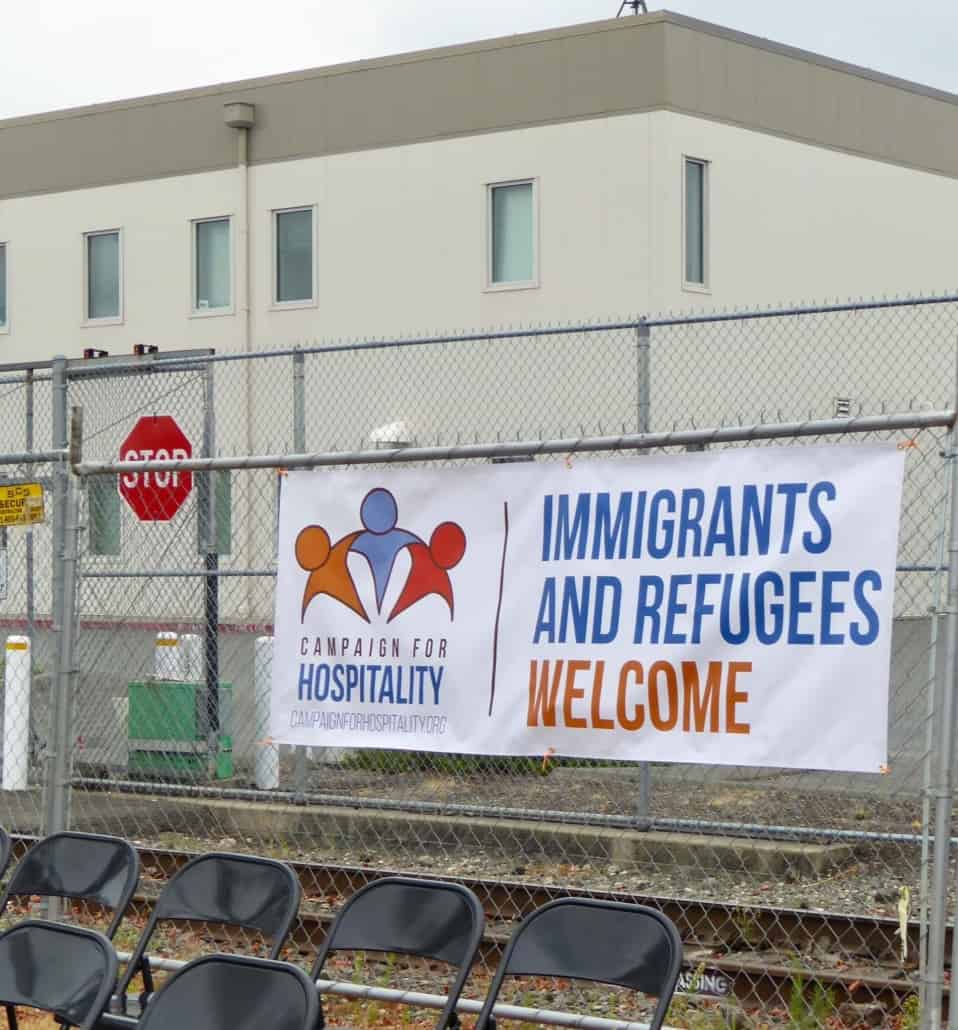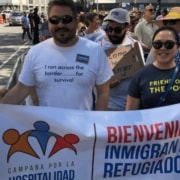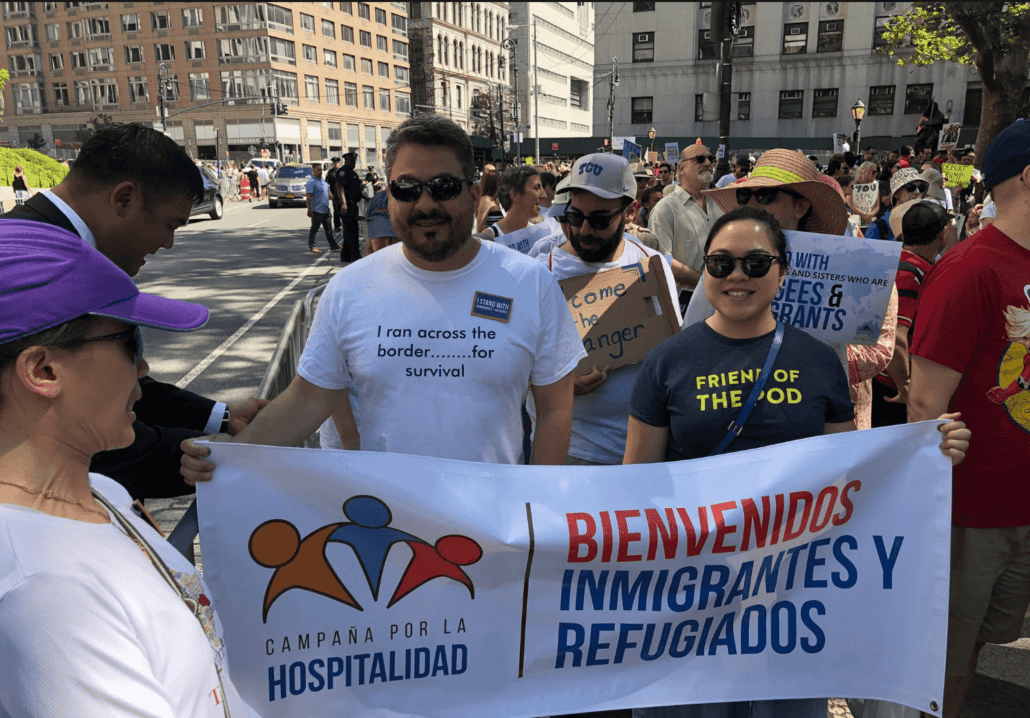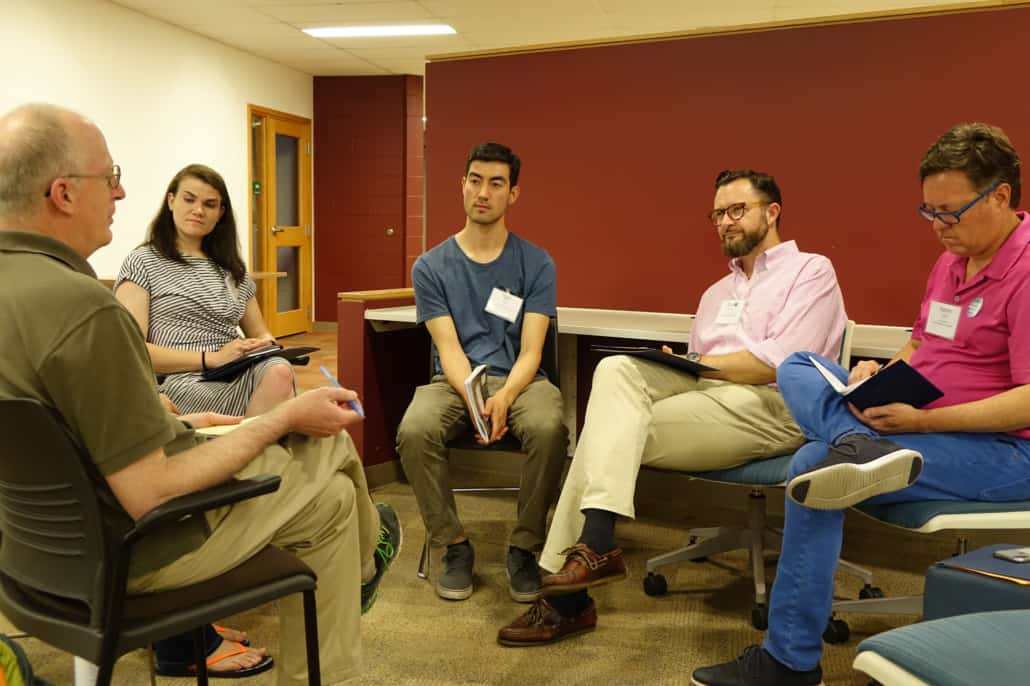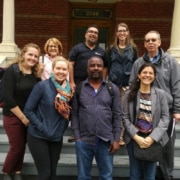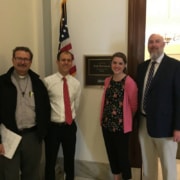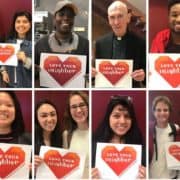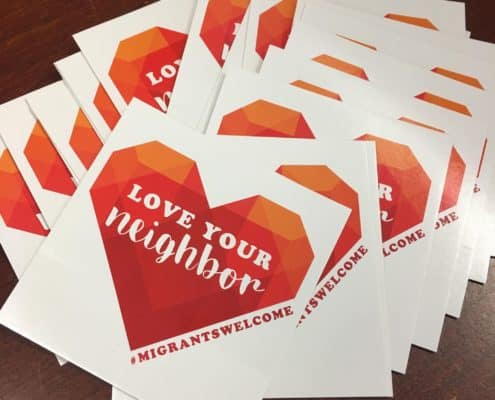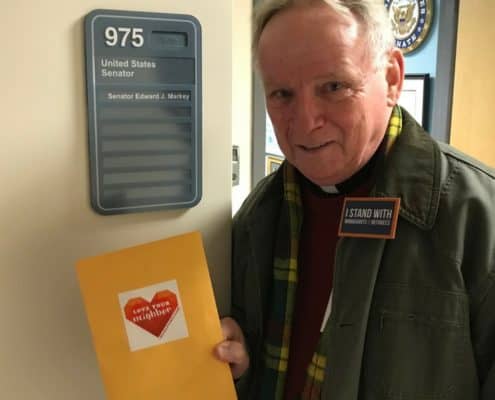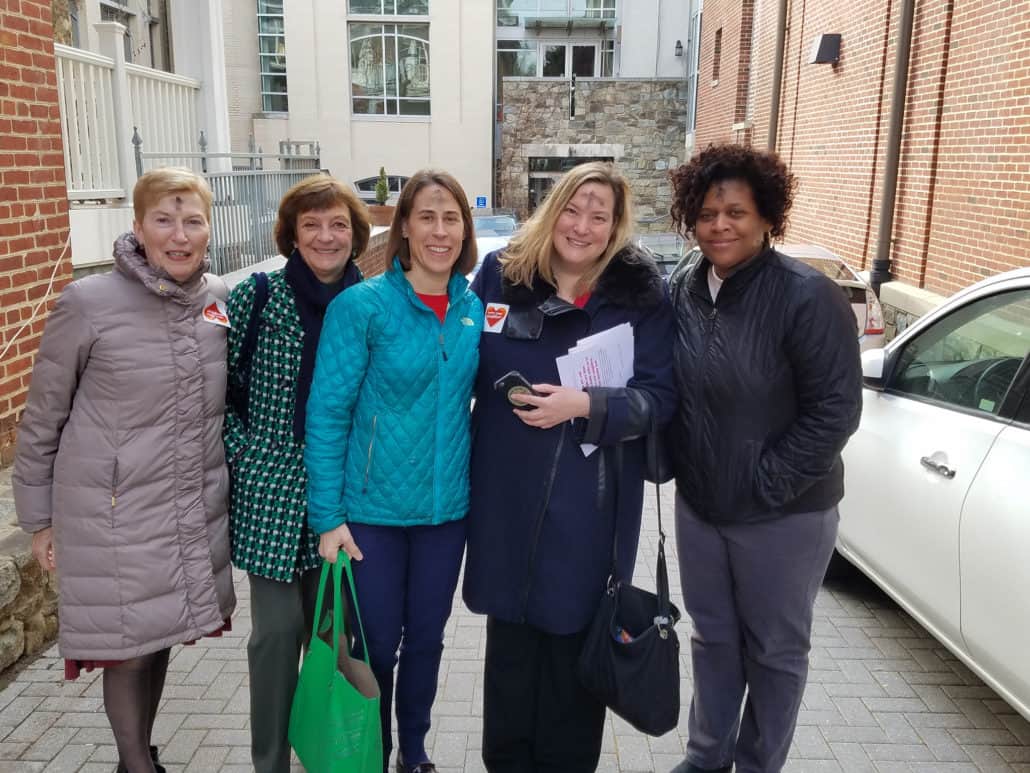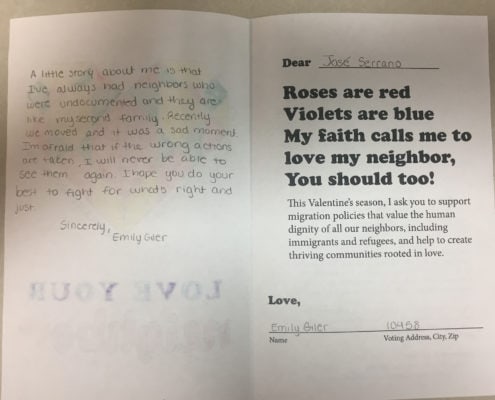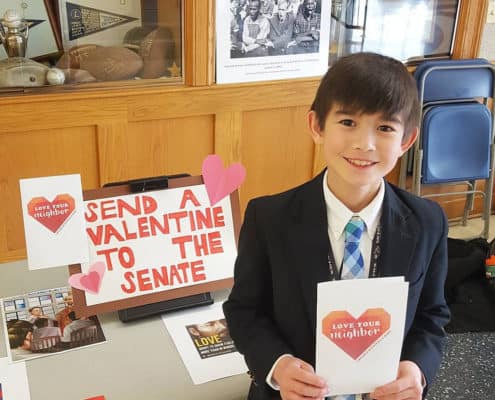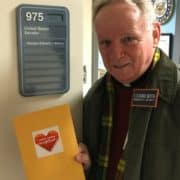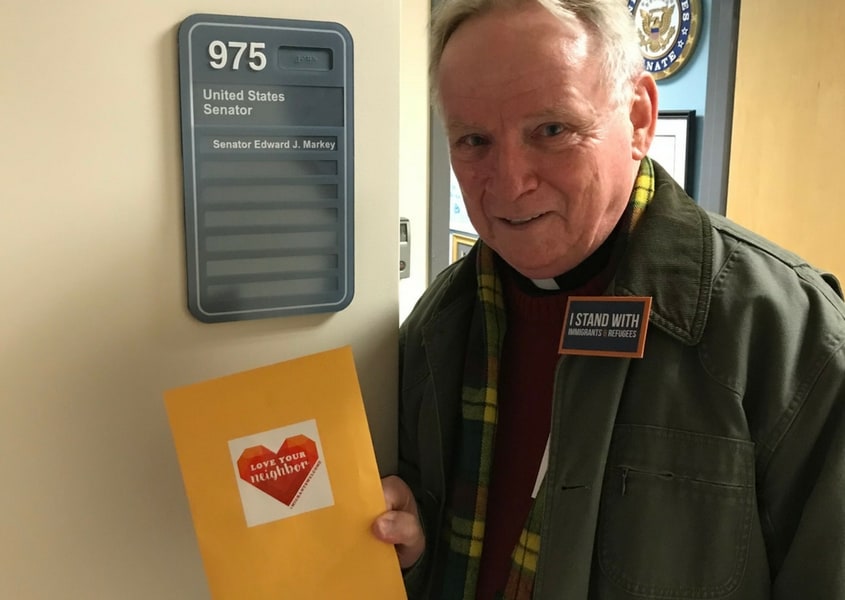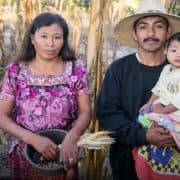BY ISN STAFF | June 22, 2019
When 100 men, women, and children who fled the war-torn African nation of the Democratic Republic of Congo arrived at the Vive Shelter, in Buffalo, New York last week looking for assistance as they seek asylum in the United States, there was a problem. The Vine Shelter, a program of Jericho Road Community Health Center on Buffalo’s East Side, had “no room in the inn.” The influx of asylum seekers had overwhelmed their facilities capacity and they were seeking assistance from the Buffalo metro community to find lodging for new and existing residents.

Canisius College in Buffalo, New York, was founded in 1870 by Jesuits from Germany and is named after St. Peter Canisius.
Those that stepped in to offer assistance include Canisius College, who will provide lodging and meals for 13 asylum seekers in a campus residence hall for three weeks beginning Sunday, June 23.
“As a Jesuit university, [Canisius College] seeks to stand in solidarity with the worldwide Society of Jesus in walking with the poor and the outcasts of the world,” said John Hurley, Canisius College president, in a message to the campus community earlier this week. “This is an opportunity to animate our mission and support the great work of Jericho Road Community Health Center.”
Hurley recently returned from a campus immersion experience to El Salvador and the U.S.-Mexico border coordinated by Christians for Peace in El Salvador (CRISPAZ) and the Kino Border Initiative. In the campus-wide e-mail announcing the initiative to host the asylum seekers he cited the experience he and his wife Maureen had meeting people during the experience, saying, “we were profoundly moved by the stories of migrants trying to escape violence to protect their families and seek a better life.”
“As a Jesuit university, [Canisius College] seeks to stand in solidarity with the worldwide Society of Jesus in walking with the poor and the outcasts of the world.”
The campus guests represent several African countries as well as Sri Lanka. Having left lives in their home countries, there is an attorney, businessmen, an information technology professional, a pastor and some who are students. Those who have work permits will spend their days at their jobs and others will return to the Jericho Road facility to assist with volunteer needs and chores.
At Hurley’s direction campus administrators developed a plan to respond to his invitation to the guests. The offices of residence life, mission and ministry, and campus ministry are working to coordinate campus facilities and daily meals for the men. Campus volunteers, including students, faculty, and staff are already responding to the invitation to assist in the preparation of a hot meal each evening as well as joining the men for dinner. Volunteers are being encouraged to consider recipes that respond to the range of diets and religious needs of each individual.
“Canisius will use this opportunity to provide hospitality and a respite to our guests,” said Sarah Signorino, the director of Canisius’ mission and identity office. “But, more importantly, we want to use this as an opportunity to build further bridges and educate around issues of migration in our community.”
“We want to use this as an opportunity to build further bridges and educate around issues of migration in our community.”
Buffalo, known as “the City of Good Neighbors,” a self-proclaimed title that represents Buffalonians welcoming spirit to those who visit or come to call the region their home. Said Signorino, “it is the duty of Canisius College to respond to those standing most on the margins.”
Asylum is a protection granted to individuals who have entered into the United States or have presented themselves the border and meet the international law definition of a “refugee.” The United Nations 1951 Convention and 1967 Protocol define a refugee as a person who is unable or unwilling to return to his or her home country, and cannot obtain protection in that country, due to past persecution or a well-founded fear of being persecuted in the future “on account of race, religion, nationality, membership in a particular social group, or political opinion.” At the end of 2017, there were approximately 3.1 million people around the world waiting for a decision on their asylum claims, according to the United Nations Office of the United Nations High Commissioner for Refugees. The Trump Administration has sought to limit the ability of people to seek asylum in the U.S., especially those arriving at the U.S.-Mexico border from Central America.
Support for refugee and immigrant communities is not new to Canisius College, an ISN member institution. In 2018, the school became an active member in Ignatian Solidarity Network’s Campaign for Hospitality. Students and staff attend the annual Ignatian Family Teach-In for Justice, where they advocate for humane migration policies on Capitol Hill. In July, a Canisius student leader will participate in ISN’s Ignatian Justice Summit, a leadership formation program for students interested in advocating on immigration issues. In addition, President Hurley has expressed his support for immigrant populations, joining fellow Jesuit university presidents in signing on to a number of statements in support of Deferred Action for Childhood Arrival (DACA) students since becoming president in 2010.
[American Immigration Council, Canisius College]

